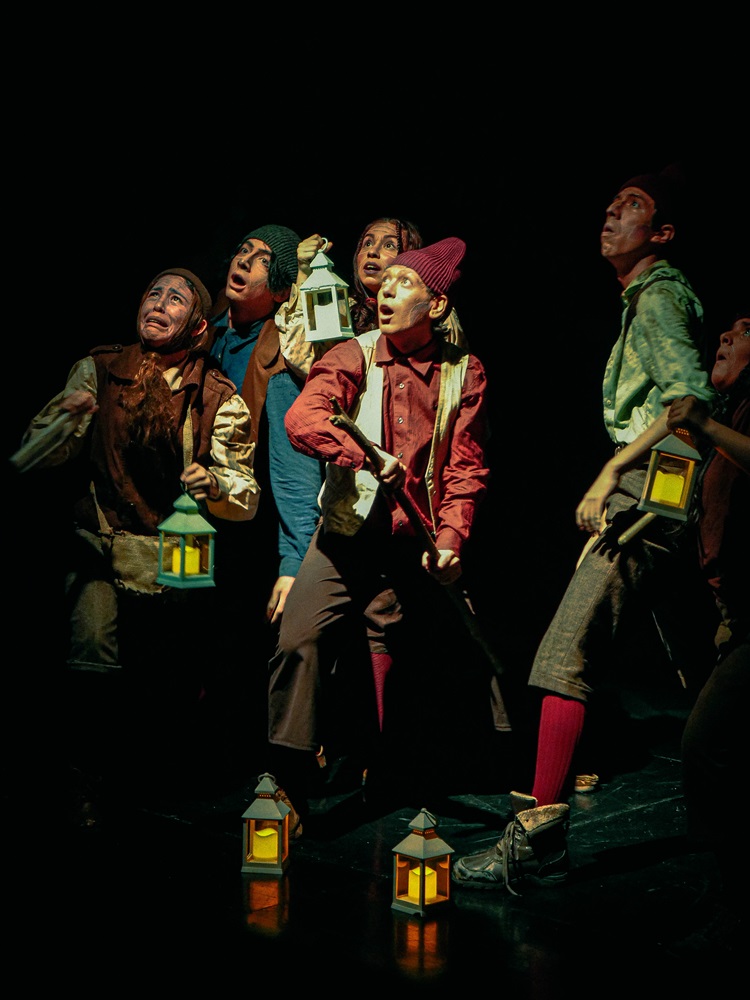Opinion column
The graduate of the Theater and Performing Communication degree at UNIACC University is a creative, collaborative, responsible, and ethically linked artist and professional with her social environment.
It may interest you: The curricular mesh of the race.
Furthermore, he is capable of managing and carrying out stage projects in different artistic territories, using various theatrical languages and narratives, responding to his own need for expression and/or contemporary problems.
Attentive to different audiences, it is capable of communicating effectively, generating spaces for integration and human development, and contributing to the identity and cultural heritage of its environment.
With the knowledge built in his university training and in tune with new artistic and technological trends, he integrates practical and theoretical aspects of theater studies and applied arts in different artistic, cultural, educational and social environments.
Studying Theater and Stage Communication is a decision that can provide you with a wide range of benefits.
The reasons to study Theater and Stage Communication
Theater and performance communication offer students a unique window to explore the art of human expression.
Studying these disciplines goes beyond learning lines and techniques; It involves immersing yourself in a rich world of creativity, emotional connection and communication skills.
Choosing to study theater and stage communication involves developing a series of talents and skills, highlighting both the personal and professional benefits that these disciplines can provide.
Theater and stage communication are powerful tools to hone communication skills.
Students learn to project their voice, modulate their tone, and use gestures and facial expressions effectively.
These skills are not only essential on stage, but also translate to everyday and professional situations, improving the ability to express yourself clearly and convincingly.
This activity involves immersing yourself in diverse characters and situations, which encourages empathy and understanding of other people’s experiences.
Students learn to connect emotionally with the characters they play, developing greater sensitivity to human emotions.
This skill transcends the stage and becomes a valuable tool for understanding and relating to people in daily life.
Meet the Dean of the Faculty of Theater, Ana Reeves.
Creativity is the soul that inhabits the boards. Students are challenged to bring characters to life, design sets, and explore different approaches to storytelling.
This creative process not only stimulates the imagination, but also strengthens the ability to solve problems and think innovatively in various situations.
Interpreting characters on stage requires deep self-knowledge. Students explore aspects of their own personality and discover new facets of themselves through the representation of diverse characters.
This journey of self-exploration contributes to the development of greater personal confidence and self-esteem.
Theater is inherently collaborative. From directing to acting to scenic design, each member of the team plays a crucial role.
Students learn the importance of teamwork, effective communication, and the ability to adapt to the needs of the group.
These skills are transferable to any work environment that requires collaboration and coordination.
The live nature of the discipline involves facing unforeseen situations and adapting in the moment. Students develop resilience by dealing with challenges in the scenario and learning to manage stress effectively.
Additionally, quick decision-making and the ability to improvise become valuable skills both in theater and in daily life.
The theater profession has the power to be a form of artistic expression that transcends linguistic and cultural barriers. Students can explore social and political issues through their performances, thus contributing to social awareness and transformation.
The ability to convey powerful messages and provoke reflection is a unique tool that theater and stage communication students can use to positively impact society.
Theater, a personal and professional impact
Studying theater and stage communication goes beyond learning acting techniques; represents a journey towards the integral expression of the human being.
From developing communication skills to exploring creativity and emotional connection, these disciplines offer significant benefits that impact both personally and professionally.
By choosing to study this discipline, students embark on a journey in which they discover not only the possibilities of art, but also the depths of their own ability to communicate, understand and transform the world around them.
2024-01-25 12:22:18
#Study #Theater #UNIACC #Journey #integral #expression


